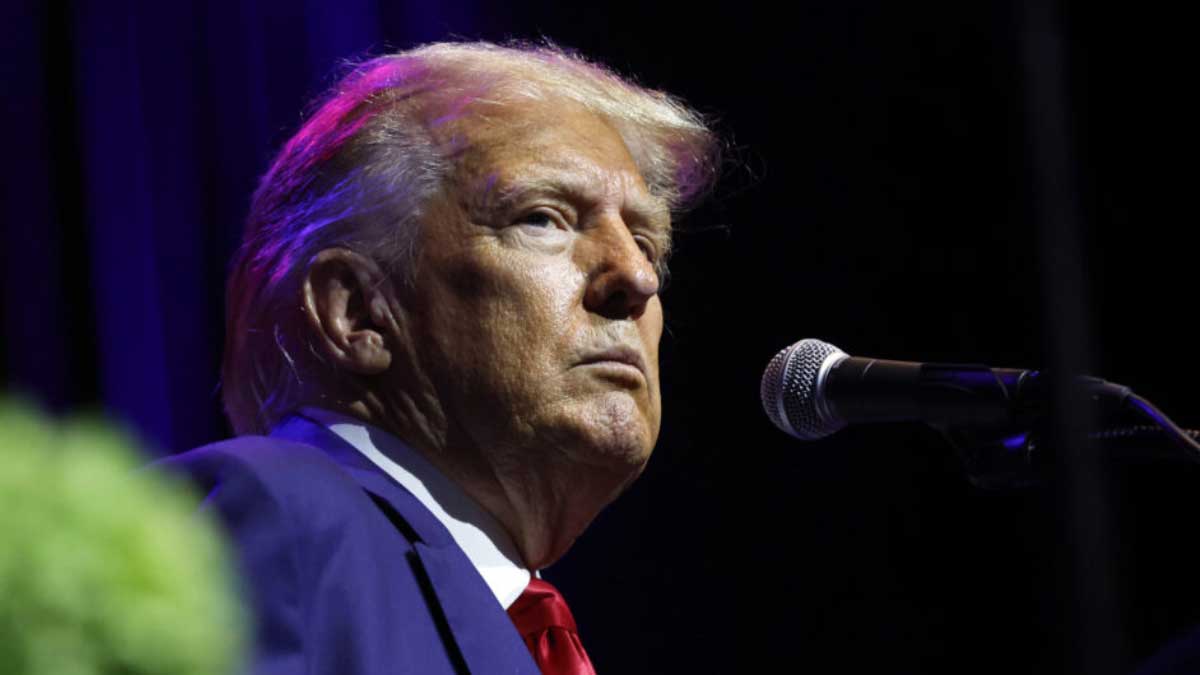- Home
- Billionaires
- Investing Newsletters
- 193CC 1000
- Article Layout 2
- Article Layout 3
- Article Layout 4
- Article Layout 5
- Article Layout 6
- Article Layout 7
- Article Layout 8
- Article Layout 9
- Article Layout 10
- Article Layout 11
- Article Layout 12
- Article Layout 13
- Article Layout 14
- Article Sidebar
- Post Format
- pages
- Archive Layouts
- Post Gallery
- Post Video Background
- Post Review
- Sponsored Post
- Leadership
- Business
- Money
- Small Business
- Innovation
- Shop
Recent Posts
Trump Still Faces Four Felony Charges in Revised January 6 Case

On Tuesday, prosecutors refined the indictment against former President Donald Trump in his federal case related to efforts to overturn the 2020 election. Despite the Supreme Court granting Trump some degree of immunity, he remains charged with four federal crimes, each of which could result in prison time if he is convicted. The updated indictment retains the same four felony counts initially brought against Trump: conspiracy to defraud the United States, obstruction of an official proceeding, obstruction of and attempt to obstruct an official proceeding, and conspiracy against rights.
Conspiracy to Defraud the United States: Under 18 U.S. Code § 371, it is illegal for two or more individuals to conspire to commit an offense against the United States or defraud any federal agency. This crime can result in a fine or a maximum prison sentence of five years. The DOJ has charged Trump with this offense due to his alleged broad scheme to overturn the election results. The indictment accuses Trump of using dishonesty, fraud, and deceit to impair and obstruct the federal process of collecting, counting, and certifying election results.
Obstruction of an Official Proceeding: According to 18 U.S. Code § 1512, it is a crime to obstruct, influence, or impede any official proceeding, or to conspire to do so. This charge is punishable by a fine or up to 20 years in prison. The indictment against Trump includes these charges due to his purported attempts to prevent Congress from certifying the electoral count and his success in delaying the certification as a result of the January 6 attack on the Capitol.
Conspiracy Against Rights: 18 U.S. Code § 241 criminalizes conspiring to injure, oppress, threaten, or intimidate Americans in the exercise of their constitutional rights or privileges. This offense, which can result in a fine or up to 10 years in prison, was initially enacted to target actions like those of the Ku Klux Klan but has been used more recently to address election-related crimes. The indictment alleges that Trump conspired to harm Americans’ voting rights by attempting to overturn the election results.
Next Steps in the Case: The case is now proceeding in federal district court after a months-long pause while the Supreme Court deliberated on the immunity issue. By Friday, both the prosecution and Trump’s defense will submit reports outlining their plans for the case’s future. A hearing is scheduled for September 5 before U.S. District Judge Tanya Chutkan to discuss the case’s progress. Trump’s attorneys are expected to challenge the revised indictment, arguing that it still conflicts with the Supreme Court’s ruling on immunity. The resolution of these challenges could impact which charges ultimately proceed to trial, a process likely to be lengthy and possibly revisited by the Supreme Court.
Trump’s Response: Trump has pleaded not guilty to the charges and will be required to undergo arraignment based on the updated indictment. He has condemned the case as a “witch hunt” and criticized the new indictment on Truth Social, describing it as “ridiculous” and demanding its immediate dismissal. Trump argues that the case is an attempt to interfere with the election and insists that it should be dismissed on grounds of presidential immunity.
Changes in the Indictment: The updated indictment, now 36 pages long compared to the original 45, reflects slight modifications to better align with the Supreme Court’s ruling. It clarifies that Trump was acting as a candidate rather than as president in his efforts to overturn the election, acknowledging that actions falling within his official presidential duties are immune from prosecution. The revised document emphasizes that Trump’s co-conspirators, such as Rudy Giuliani, were acting in private capacities rather than as government officials. It also removes certain allegations related to Trump’s presidential duties, such as pressuring Justice Department officials, which the Supreme Court deemed immune, and excludes references to Chief of Staff Mark Meadows observing the vote counting process in Georgia.
Context of the Indictment: The indictment follows a significant effort by Trump and his allies to overturn the 2020 election results, including an unsuccessful legal campaign, a scheme involving fake electors, and attempts to block Congress’ certification of the vote, culminating in the January 6 Capitol riot. The DOJ began investigating the January 6 incident shortly after it occurred, focusing on Trump’s post-election actions as part of its criminal probe. The initial indictment was filed in August 2023, accusing Trump of spreading false claims about election fraud to maintain power. Despite his claims of immunity, Trump’s arguments have been rejected by lower courts and the Supreme Court, which ruled that he could not be prosecuted for actions related to his official duties as president.
The case against Trump remains a high-stakes legal battle, with the potential for significant consequences depending on how the charges and legal arguments evolve in the coming months.
Recent Posts
Categories
- 193 Countries Consortium Partner1
- 193cc Digital Assets2
- 5G1
- Aerospace & Defense48
- AI37
- Arts3
- Banking & Insurance11
- Big Data3
- Billionaires1,356
- Boats & Planes1
- Business332
- Careers13
- Cars & Bikes79
- CEO Network1
- CFO Network17
- CHRO Network1
- CIO Network1
- Cloud10
- CMO Network18
- Commercial Real Estate7
- Consultant1
- Consumer Tech194
- CxO1
- Cybersecurity73
- Dining1
- Diversity, Equity & Inclusion4
- Education7
- Energy8
- Enterprise Tech29
- Events11
- Fintech1
- Food & Drink2
- Franchises1
- Freelance1
- Future Of Work2
- Games149
- GIG1
- Healthcare79
- Hollywood & Entertainment203
- Houses1
- India’s 1000 Richest1
- Innovation46
- Investing2
- Investing Newsletters4
- Leadership65
- Lifestyle11
- Manufacturing1
- Markets20
- Media327
- Mobile phone1
- Money13
- Personal Finance2
- Policy569
- Real Estate1
- Research6
- Retail1
- Retirement1
- Small Business1
- SportsMoney42
- Style & Beauty1
- Success Income1
- Taxes2
- Travel10
- Uncategorized13
- Vices1
- Watches & Jewelry2
- world's billionaires1,325
- Worlds Richest Self-Made Women2
Related Articles
South Korea Plane Crash: A Tragic Loss and Global Mourning
The tragic plane crash at South Korea’s Muan International Airport on Sunday...
By 193cc Agency CouncilDecember 30, 2024H-1B Visa Debate Splits Trump Allies and Silicon Valley
The debate over H-1B visas has once again become a contentious issue,...
By 193cc Agency CouncilDecember 28, 2024Trump Moves $4B Stake in Truth Social Parent, Stock Drops 6%
Donald Trump recently transferred his 57% stake in Trump Media & Technology...
By 193cc Agency CouncilDecember 20, 2024House Rejects Trump-Backed Funding Bill, Shutdown Looms
The U.S. House of Representatives rejected a new government funding bill on...
By 193cc Agency CouncilDecember 20, 2024















Leave a comment